BRUNEI
You need a certain frame of mind to go to Brunei. The sultanate consists of two separated strips of land on the north-west of Borneo. The ruling dynasty has been in power for over 650 years, with family members occupying the majority of ministerial positions. The population is 400,000, but there are double the number of cars because everyone has two.
I fly in from Surabaya in Indonesia. There is a man checking in over 40 identical white suitcases. First class is occupied by over 40 people all wearing matching clothing. An enthusiastic party member jogs down the aisle videoing it all. The sun rises nicely as we fly in over the Java Sea to land at Bandar Seri Begawan, which translates as ‘city of the glorious retiree’ but is usually referred to as BSB.
Everything is highly efficient and there is strict Sharia law, which means, among other things, no alcohol anywhere in the country. ‘Other things’ includes new hardline laws announced in April 2019 meaning stoning gay couples and adulterers to death, amputations for theft, whippings for lesbianism, and much more. I check in to the Radisson Hotel intending to avoid all such activities.
After a relaxing swim, I walk over to the Regalia Museum, which is full of everything used by the sultan in his life. It’s huge, and it’s certainly all about him. His name is His Majesty Sultan Haji Hassanal Bolkiah Mu’izzaddin Waddaulah ibni Al-Marhum Sultan Haji Omar ‘Ali Saifuddien Sa’adul Khairi Waddien, Sultan and Yang Di-Pertuan of Brunei Darussalam. So he has 25 names. There might be a typo in that, but who knows? What it certainly means is that when you read the local newspaper, the bulk of any paragraph is what I just typed, leaving a small amount of space at the end for a verb explaining what the guy has been up to. In the papers when I am there, he has sprung a surprise visit on a student accommodation facility and torn them off a strip for poor management and lack of accountability. Apparently he does this a lot.
The place is full of huge buildings in wide-ranging space, some of them never opened again after they have been used once, such as the Lapu where there was a coronation in 1968 and it has never opened since. After a somewhat restless night punctuated by boy racers speeding up and down outside the hotel, on my second day I am driven around. I ask my guide why the police don’t stop the road racing, and he informs me that the police are often the participants. First up is the Jame’ Asr Hassanil Bolkiah mosque, which is suitably grand and pleasantly empty. Capacity 5,000, and scene of many a goat sacrifice. Then on to the equally majestic Omar Ali Saifuddien mosque, which is only open to the public twice a year. Amazingly it is open today, which allows the delightful experience of watching kids doing art and drawing in this huge place. Plus an artist wrote my name in Arabic, or at least I assume that’s what it says.
Then on to the Maritime Museum, which contains the fascinating contents of a shipwreck from 16th century China which contained all manner of goodies. The Malay Technology Museum shows the development of various local skills, particularly gold and silversmithery, and the carpentry that helped build the houses on stilts in the water village Kampong Ayer. We take a visit there later. The original houses were on wooden stilts but now most have concrete pillars and electric power. Invited in to one of them, I discover that they are enormous. With no basement or upstairs, they go and on horizontally. The living room I saw had seating for eighty people. We rounded the tour off with a Sultan’s Palace photo stop (it’s 2,000 square km and no one is allowed in, so you only see the gates – pretty pointless), and finally lunch at the massive Rizqun Hotel, where Bruneians show off in droves.
Concluding remarks on Brunei. Dry, authoritarian, and somewhat eccentric as you would expect a long-term sultanate to be. There is fascinating history here, but you have to work to find it. A large proportion of the population appear to be blingy show-offs with a high sense of entitlement given that they pay no tax, have free education and healthcare, and fuel that is cheap as a bag of crisps. Corruption at parliamentary level remain a persistent problem, and much of the place feels as though it is hidebound by rules and regulations. 6/10.
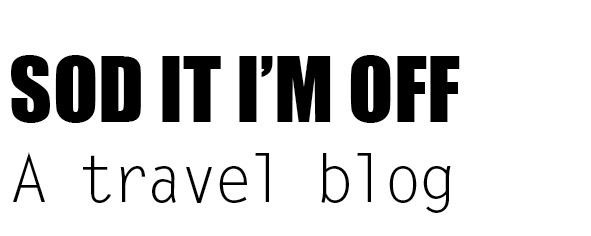
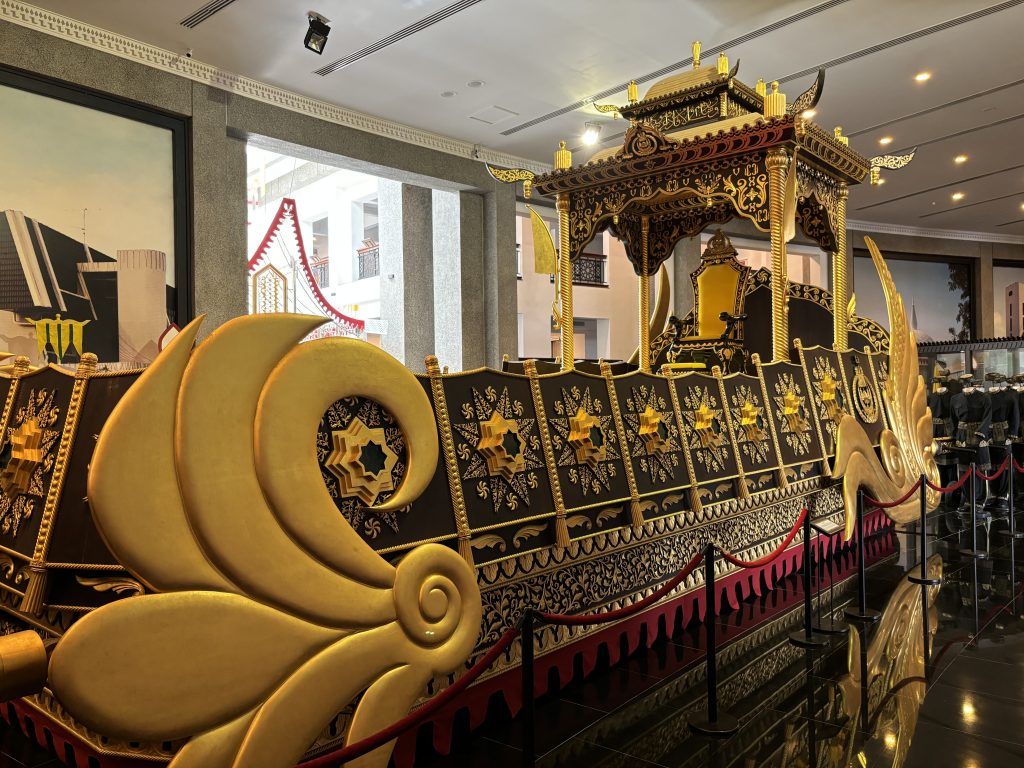
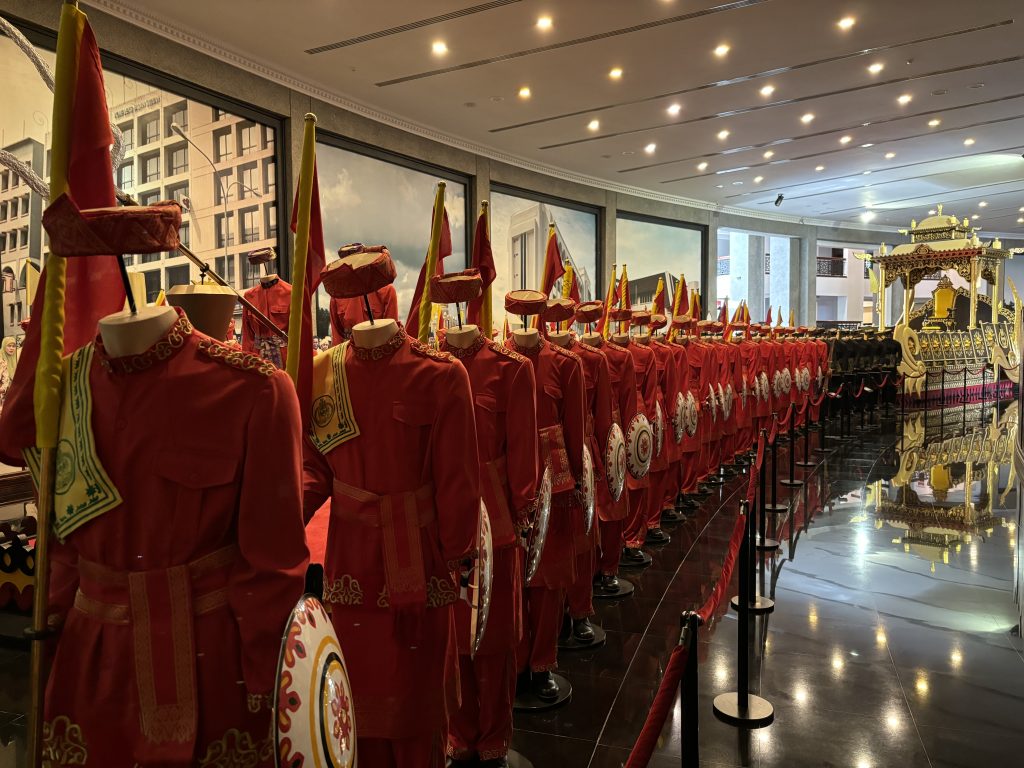
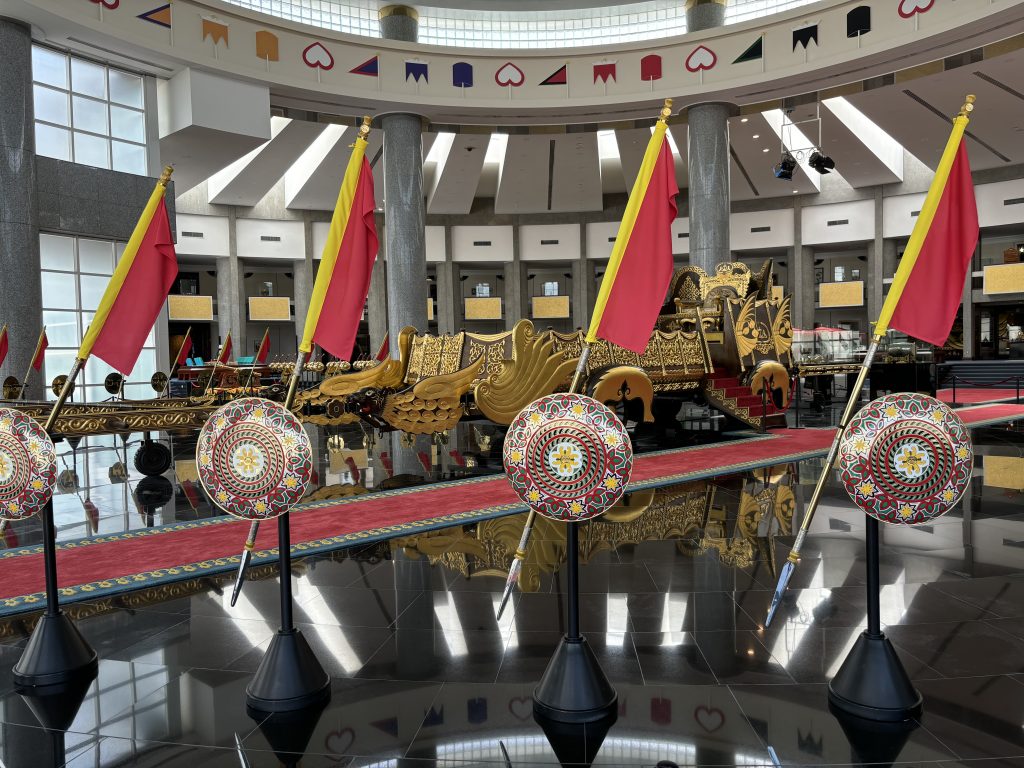
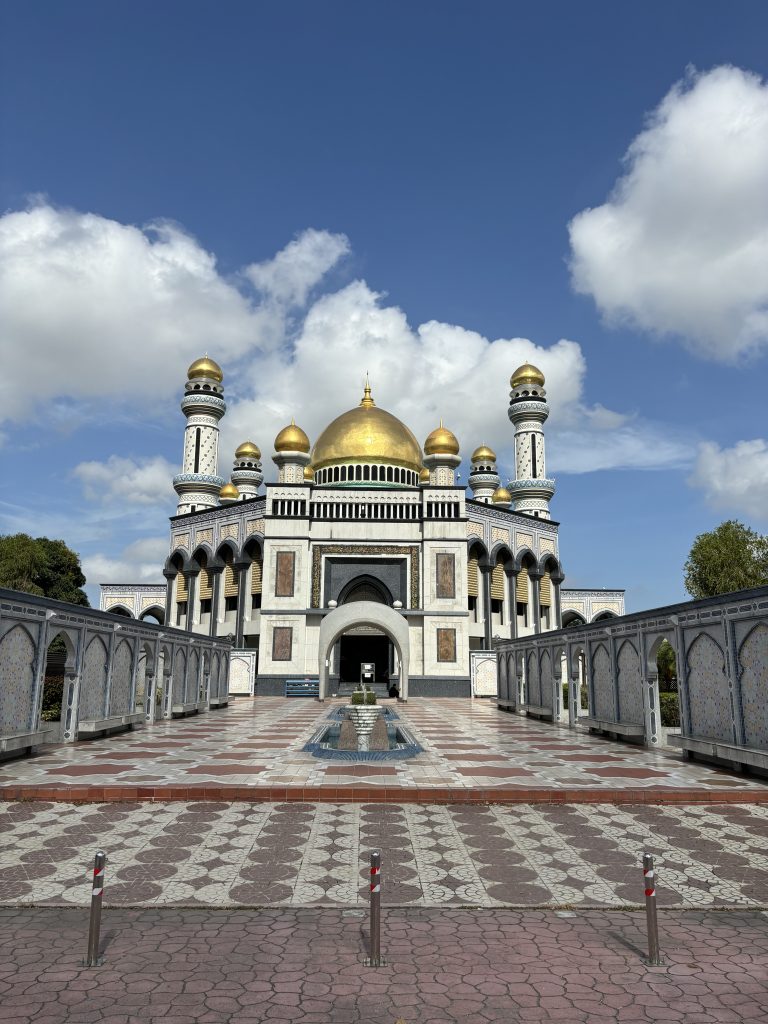
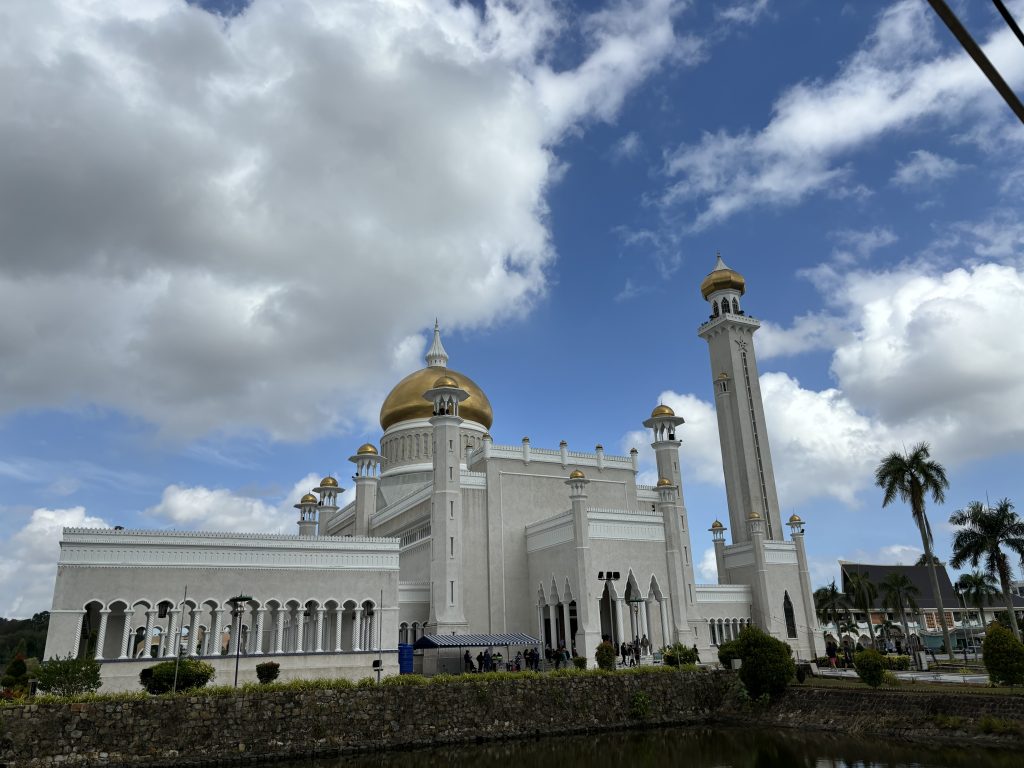
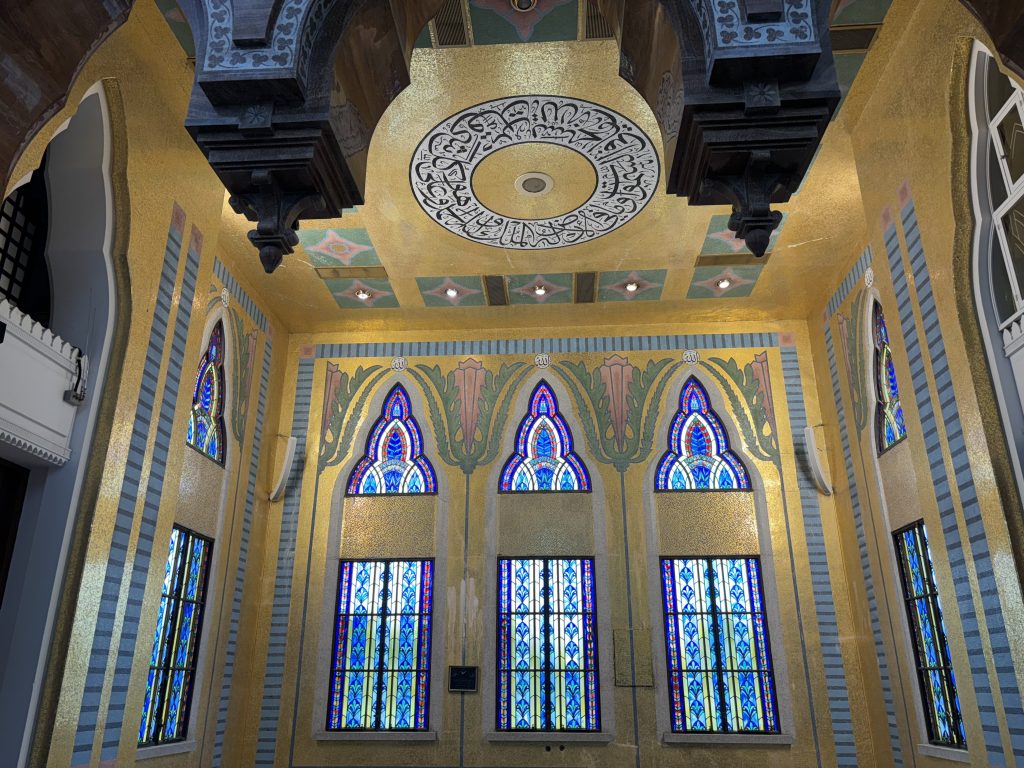
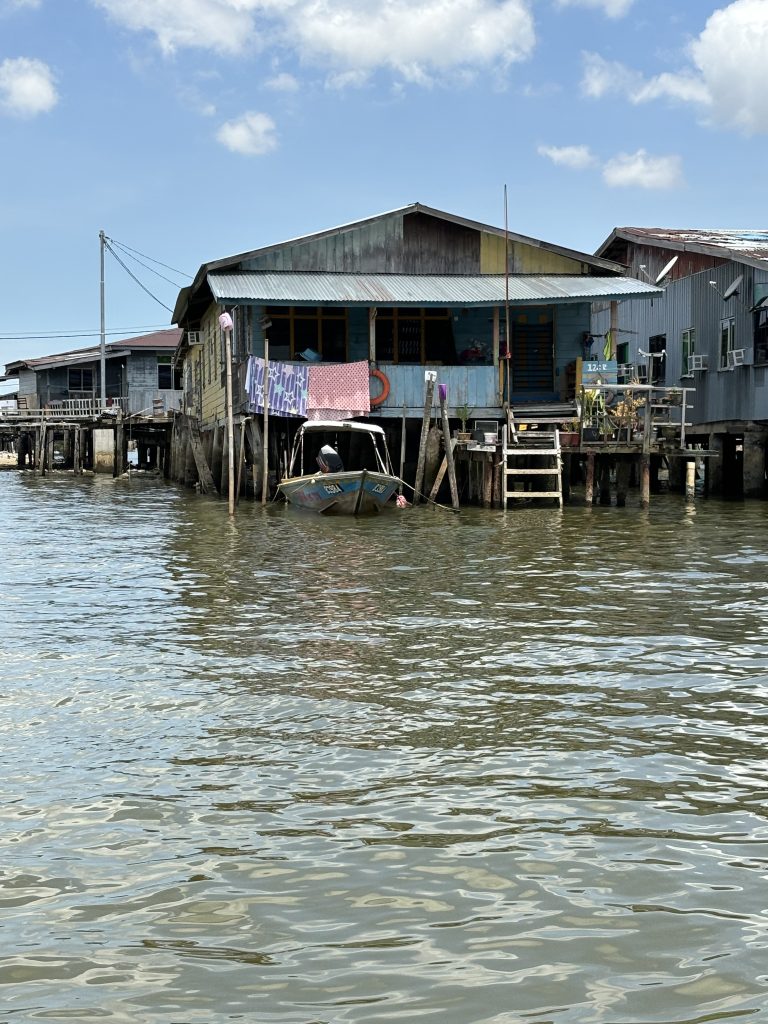
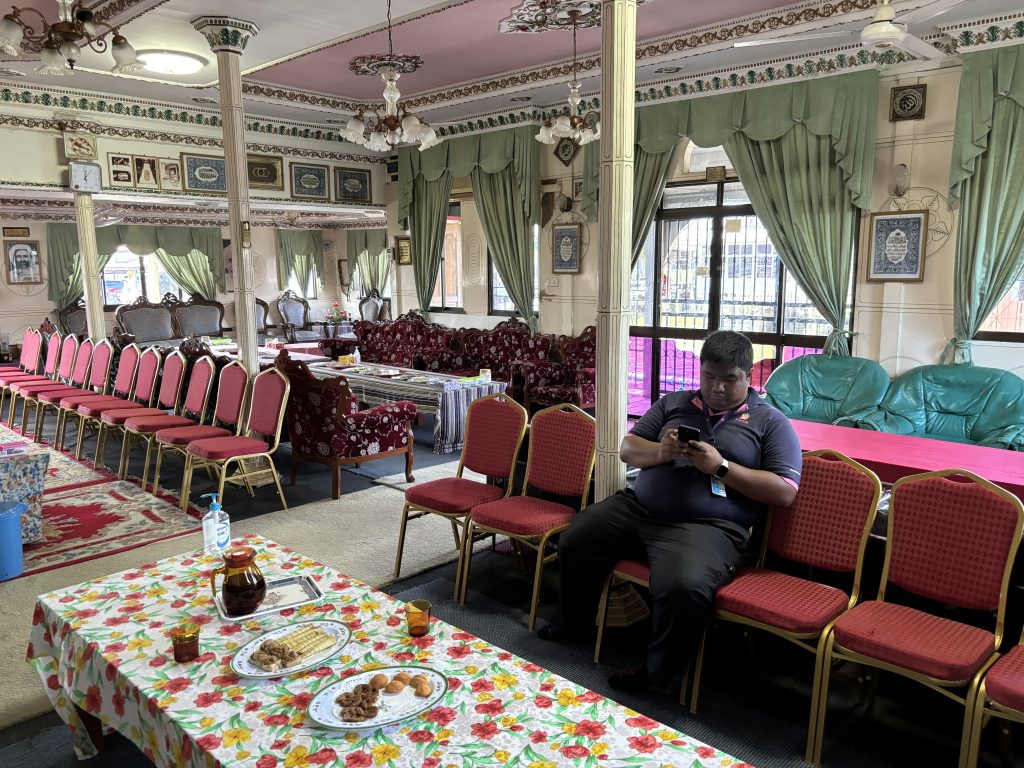
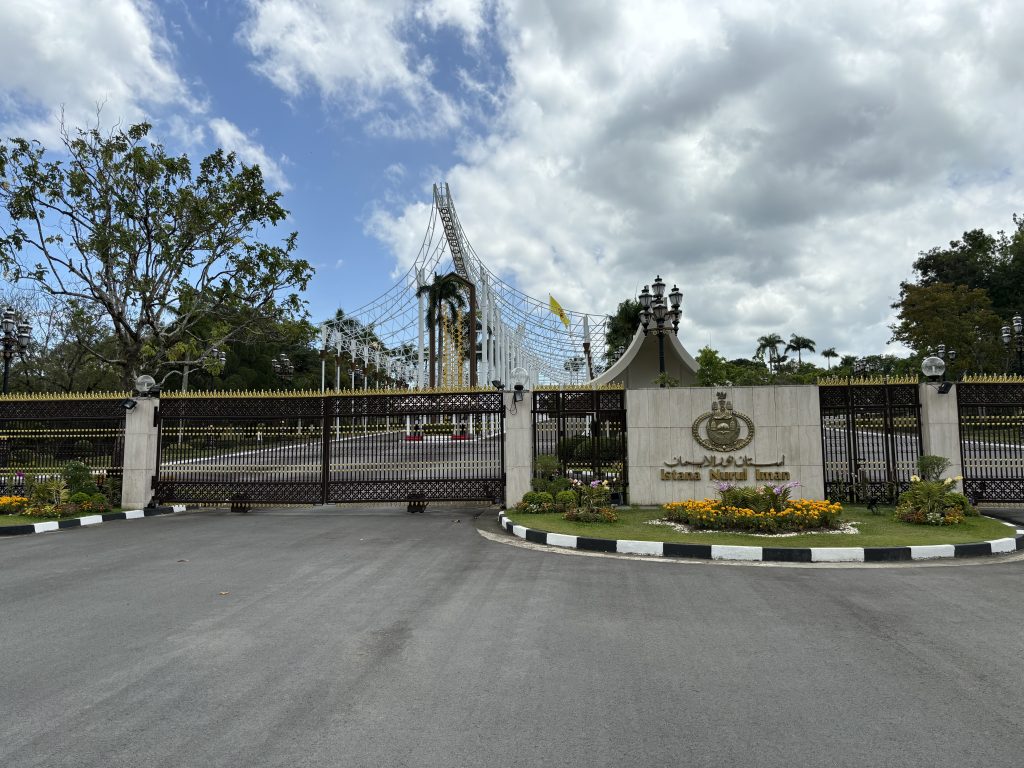
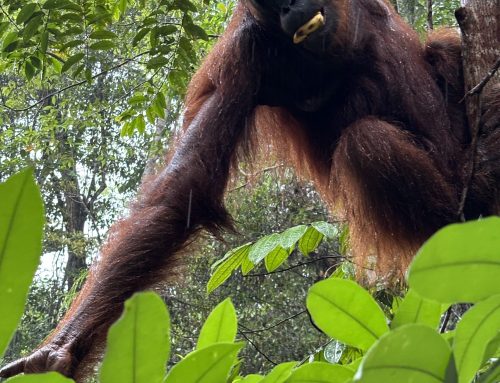
Leave A Comment